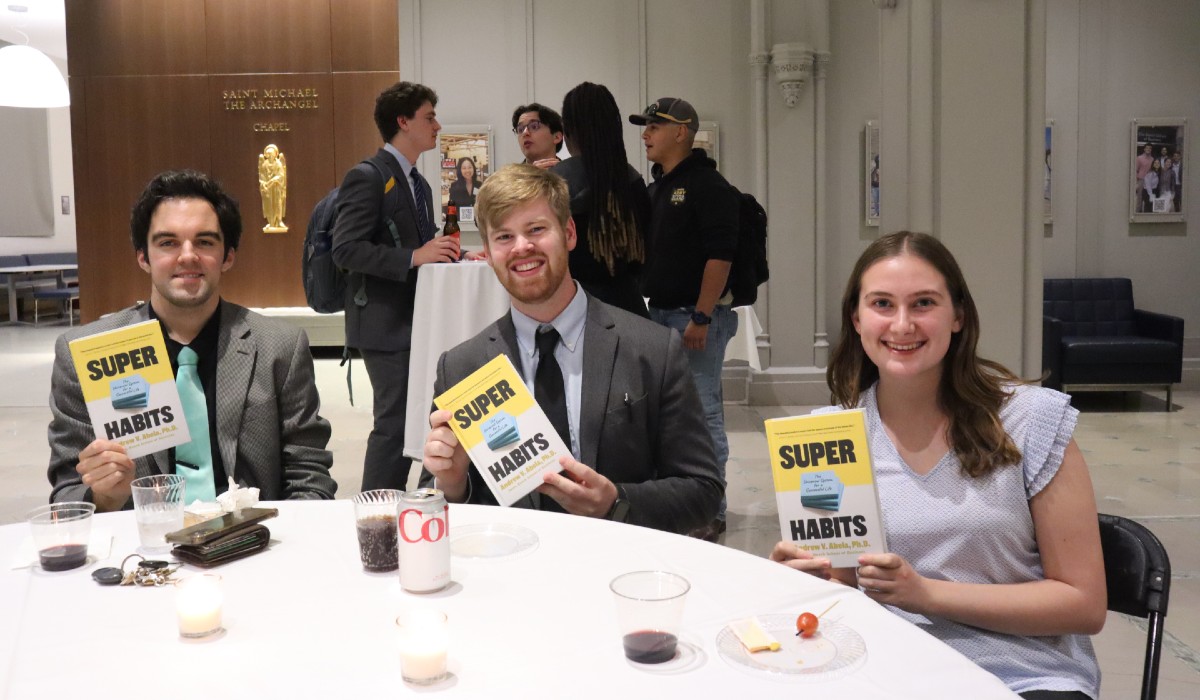
By Flavio Felice, Michael Novak Distinguished Visiting Scholar-in-Residence, Busch School of Business The Catholic University of America.
In the academic life of a university that aims to stand out for promoting civil principles inspired by the Church’s Social Doctrine, we cannot overlook the impact of virtues on the daily lives of students and teachers. This is a crucial point that we believe requires careful consideration to address the significant challenges of the so-called ‘educational emergency’ in a coherent and original manner.
The Busch School of Business at The Catholic University of America is involved in an ambitious project, promoted by the Educating Character Initiative, an educational program at Wake Forest University. This project aims to raise awareness of the importance of spreading the theme of virtues among the younger generations and how this can foster relationships within the academic community and between different university institutions.
Peter K. Kilpatrick, President of The Catholic University of America, emphasizes that such a good practice is rooted in the Church’s Social Doctrine, which states that “virtue and character formation are fundamental to the dialogue between faith and reason, and thus, to our academic community.” The program aims to offer a series of supplementary courses and activities that will focus on campus life, providing theoretical knowledge and practical skills that can be useful in the daily lives of students as they prepare to enter the workforce.
In this project, The Catholic University of America joins the Educating Character Initiative program, by building on existing courses and introducing new ones. Furthermore, the University will create an online resource catalog for the entire academic community and make the materials accessible to other universities, regardless of their religious or non-religious orientation.
At present, all students at The Catholic University of America are enrolled in various philosophy and theology courses. The degree courses in economics, psychology, nursing, and other fields also incorporate teachings oriented towards the practice of virtues, including “character care”, “virtue diary”, and reflections on “clinical care experiences”. These and other practices will be seamlessly integrated into existing and upcoming courses, catering to all university students.
As stated by project leader Dr. Andrew Abela, Dean of the Busch School of Business and author of Superhabits: The Universal System for a Successful Life, whose Italian edition is being printed by Rubbettino, "We are thrilled to formalize and expand our work on fostering student virtue to the entire university community of Catholic University, in a way that can be further shared throughout higher education."
The driving force behind this educational program, which also forms the core of Abela’s book, is the belief that every individual has the ability to cultivate a set of mental habits, whose functions can be learned and strengthened just like any muscle in our body. These habits, not yet internalized like virtues, allow us to manage our thoughts, emotions, actions, and feelings. If we learn and mature them, Abela says, “we can walk, and then run, instead of crawling our entire lives.
To grasp the civil impact of such an educational approach on working life, consider how consulting firms, leading universities, and business organizations are increasingly focusing on these aspects of daily life. These “fundamental capabilities”, also known as “lasting skills”, are crucial not only for enhancing work productivity but also for fostering more decent and humane relationships in all areas of people’s lives.
This is a crucial topic that impacts the future of our democratic and liberal societies, which aim to continue their journey on the path of democracy and liberalism, avoiding the pitfalls of increasingly aggressive illiberal democracies. However, they must not abandon strong ideals and resign themselves to cold passions.
As Alexis de Tocqueville taught us, the virtues practiced by the homo democraticus are those of ordinary people, habits learned, practiced, trained, and internalized to the point of acting virtuously without even realizing it. This is the secret to a free and virtuous society.
This article was originally published in Avvenire (a daily newspaper of the Italian Episcopal Conference).
Other articles by Dr. Flavio Felice
flavio.felice@unimol.it
